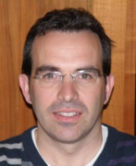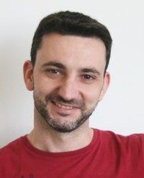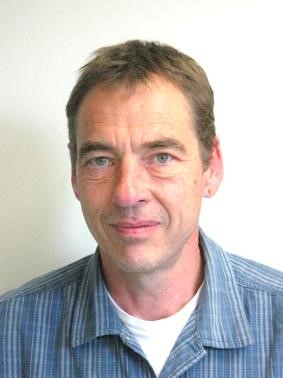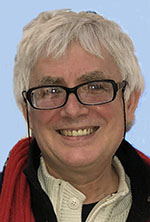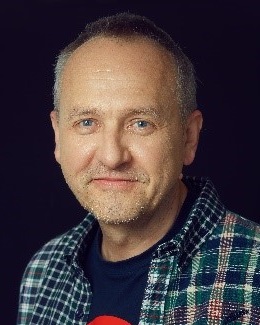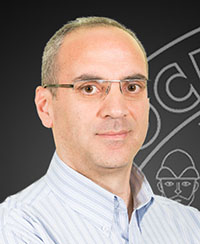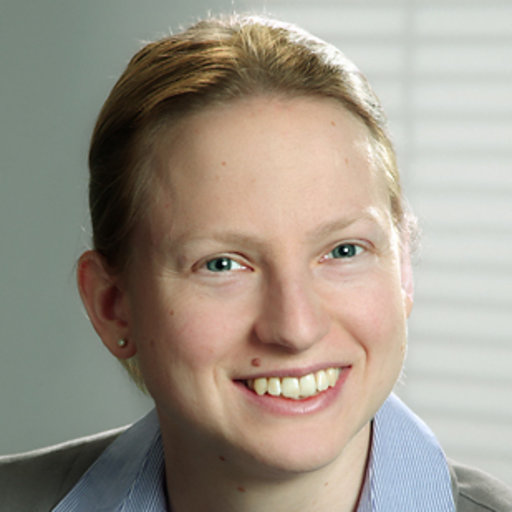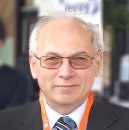Ignacio Álvarez completed his degree in the Veterinary School from University of Zaragoza (Spain) with a Major in Food Science and Technology. His Master Thesis was ‘Heat and ultrasound under pressure resistance of Salmonella Enteritidis and Salmonella Senftenberg in media of different water activities’. After 3 years of research at University of Zaragoza and 1 year at the Technical University of Berlin (Germany), he received his Ph.D. from University of Zaragoza, working with Dr. Javier Raso and Dr. Santiago Condón on ‘Microbial inactivation by Pulsed Electric Fields’. He received a grant from the Fulbright Program for a one year stay to join the Food Safety Intervention Technologies Research Unit at USDA working on ‘Ionizing Radiation of shell egg and liquid whole egg’. Currently, he is assistant professor of Food Technology at University of Zaragoza (Spain), belongs to the research group of ‘New technologies for food processing’ of the same University, and he has been the head of the Pilot Plant of Food Science and Technology of the University of Zaragoza between 2011 and 2014. He has published more than 80 JCR publications, advised 10 PhD Thesis, and participated in more than 25 research projects, and 45 projects with enterprises, and he is co-author of 5 patents. He has received several awards remarking ‘Award to the Young Researcher in Food Microbiology from the Spanish Society of Microbiology’ in 2014.
Guillermo Cebrián Auré holds a degree in Veterinary science (2003) and received his PhD in Food Technology in 2009. He has been visiting researcher of the Laboratory of Food Microbiology of the Katholieke Universiteit Leuven (Belgium) and the Institute of Food Research (Norwich, UK). After that, he worked for 4 years as an investigator at the R&D department of ZEULAB, a biotechnology company located in Zaragoza (Spain). His work there was focused on the development of a new line of products for the detection of pathogens and allergens in foods He rejoined the “New Technologies for Food Preservation Group” in 2015 and since 2016 he is Assistant Professor (non-tenure) at the Animal Production and Food Science Department of the University of Zaragoza. These experiences have given Dr. Guillermo Cebrián Auré the opportunity to possess a solid knowledge of microbial physiology, microbial stress responses and food preservation technologies. During his scientific career, Dr. Guillermo Cebrián Auré has published 35 articles in peer-reviewed journals, 4 book chapters, and has presented his research in more than 20 National and International Conferences.
Giovanna Ferrari…
Wolfgang Frey received the Phd degree in high voltage technology and plasma physics from the University of Karlsruhe, Germany. He was an Assistant Professor with the High Voltage Institute at the University of Karlsruhe, focusing on on new pulsed power concepts, high voltage test engineering and switching. In 1997, he joined the Pulsed Power Group at KIT/IHM. He started with pulsed electron beam surface coating, worked on electrodynamic fragmentation technology and turned to pulsed electric field effects on biological material in 2001. He focussed at applied research on pulsed electric field treatment for bacterial decontamination and cell component extraction and on basic research for ns-timescale membrane-voltage-dynamics measurement. Since 2006, he has been Team Leader in Bioelectrics at KIT/IHM. His current research interests include PEF processing of microalgae for efficient extraction of multipe cell components, stress responses in microalgae due to nsPEF exposure and bacterial decontamination in industrial water streams.
Henry Jäger is Professor of Food Technology at the University of Natural Resources and Life Sciences (BOKU) in Vienna. He moved back to academia from an industry position in Research and Development at Nestlé where he worked on process development in the field of preservation technologies. Before, he was researcher in the Department of Food Biotechnology and Food Process Engineering at Technische Universität Berlin where he also obtained his PhD and an Engineering Degree (Dipl.-Ing.) in Food Technology. His research field covers the application of alternative food processing technologies for gentle food preservation as well as the targeted modification of food structures.
Nikolai Lebovka obtained his PhD degree in molecular physics at Taras Shevchenko National University (1986) and Habil. Dr. Science in Physics of Colloids at the Institute of Biocolloid Chemistry (1995). Over the last 20 years Lebovka is a guest professor at the Université de Technologie de Compiègne, France. His research interests encompass the electric field effects in bio and food materials (electroporation and PEF assisted processing). The other interests include studies of colloidal suspensions, biocolloids, nanocomposites, statistical and computation physics. He has been involved in a number of international and national funded projects in these topics.
James Lyng‘s research focuses on the use of emerging thermal (microwave, radio frequency wave and ohmic heating) and ‘non-thermal’ technologies (ultrasound, high voltage pulsed electrical fields and light (Ultra Violet Light, Blue Light and High Intensity Pulsed Light) in the processing of foods with particular reference to the assessment of these technologies for accelerating reactions and/or preservation and their impact on product quality/nutritional value. In addition, and more recently, his research is also focusing on the evaluation of these technologies for extraction of bioactive compounds from foods. His success in securing research funding has established a critical mass of equipment/expertise in innovative food processing technologies at UCD. He has published a significant number of scientific publications (182) in the processing area (h-index 45, Citations 5387, (source Google Scholar)) and has also co-edited 2 books and have 2 patents in the processing area.
Damijan Miklavčič received a Ph.D. degree in electrical engineering from the University of Ljubljana. He is currently a Professor at the Faculty of Electrical Engineering, University of Ljubljana. His research interests include electroporation-based gene transfer and drug delivery, irreversible electroporation as tissue ablation method, development of electronic hardware and numerical modeling of electroporation. During the last few years his interests overlap also with the use of electroporation in food science and biotechnology. He is the past president of the International Society for Electroporation Based Technologies and Treatments (www.electroporation.net) and is promoting the cross-sectional research and application of the PEF technology.
Gianpiero Pataro received his PhD in 2004 at the University of Salerno (Italy) where he is currently Assistant Professor in Chemical Plant Design at the Department of Industrial Engineering. His research field covers the application of emerging thermal (ohmic heating) and Nonthermal technologies (pulsed electric fields, high intensity pulsed light, continuous wave UV light, high pressure carbon dioxide) in food and biotechnological processes, with three main objectives: improve safety, quality and functional properties of processed foods, induce targeted modification in food structures, and improve the mass transfer process of valuable compounds from biological matrices (food and food by-products, microalgal cell suspensions).
Javier Raso received his PhD in 1995 at the University of Zaragoza (Spain) where he is currently professor of Food Technology and former Director of the Pilot Plant of Food Science and Technology. He has been visiting researcher of the Microbiology Department at Unilever Research in Bedford (UK), of the Department of Food Biotechnology and Food Process Engineering at Technical University of Berlin (Germany) and of the Biological Systems Engineering Department at Washington State University (USA). His areas of research are in the field of food preservation and processing by thermal and non-thermal technologies such as ultrasound, high hydrostatic pressure, pulsed electric fields and combined processing. Research interest is focused in critical factors affecting efficacy of technologies, kinetics and mathematical modeling, process optimization and mechanisms of action. He has been involved in a number of EU and national funded projects in these topics and he is the author of more than 120 peer-review. He is co-author of the book “Pulsed Electric Fields Technology for the Food Industry” and he is serving in the editorial board of the “Innovative Food Science and Emerging Technologies” journal. He was Vice-Chair of the COST Action TD1104 “European network for development of electroporation-based technologies and treatments (EP4Bio2Med) and coordinator of the project FieldFOOD of the Horizon2020 Framework Program of the European Union.
Cornelia Rauh is Head of the Institute of Food Biotechnology and Food Process Engineering at the Technische Universität Berlin (Germany) since March 2013. Before, she was group leader of the research groups “Thermofluiddynamics of biotechnological processes” and “Computational Fluid Dynamics” at the Institute of Fluid Mechanics at the Friedrich-Alexander-University of Erlangen-Nuremberg (Germany). There, she received her PhD in 2008 and her Habilitation in 2013. Until 2005, she studied Technology and Biotechnology of Foods at the Technical University of Munich (Germany). Her research focus lies in the interdisciplinary field of numerical and experimental investigation of biotic and abiotic systems capable of flowing. This includes food preservation by high pressure processing or pulsed electric fields processing, generation and stability of food foam systems, extrusion processes, fermentation processes, analysis and design of (bio)chemical reactors up to bionic applications at a broad range of time and length scales. She has received several awards for her research up to now. Cornelia Rauh is involved in several national and international research projects. Up to now, she has published more than 80 peer reviewed articles, 11 book chapters and more than 210 conference contributions (including 25 invited lectures). She is also serving as reviewer for several peer reviewed journals, e.g. Innovative Food Science and Emerging Technologies, Environmental Science & Technology, Fuel, Microfluidics and Nanofluidics, Ultrasonics.
Robert Soliva-Fortuny received a Ph.D. in Food Engineering from the University of Lleida in 2003. He is currently Full Professor at the Department of Food Technology of University of Lleida, Spain. His research interests are focussed within the food processing and preservation field. The development of high-quality, safe and healthy ready-to-eat products by combining novel and conventional techniques is one of his main research activities. He has been actively participating in several projects related to nonthermal processing of plant-based foods (pulsed electric fields, pulsed light). His studies are mostly focussed on the effects of technological treatments on quality-related enzymes and compounds. He has authored more than 140 peer-reviewed research papers and several book chapters, most of them related to the study and development of novel food processing technologies.
Stefan Töpfl…
Eugène Vorobiev is a full Professor of the Chemical Engineering Department and a head of the laboratory for Agro-Industrial Technologies at the Université de Technologie de Compiègne (UTC), France. He received his PhD degree in Food Engineering (1980, Ukraine) and his Dr Habil. in Chemical Engineering (1997, France). His main research interests are focused on mass transfer phenomena, theory and practice of solid/liquid separation, and innovative food technologies (especially electrotechnologies). He has published more than 300 peer-reviewed papers, edited several books, and is the author of 19 patents. He is a member of editorial board in several journals (“Separation and Purification Technology”, “Innovative Food Science and Emerging Technologies”, “Food Engineering Reviews”, “Journal of Agricultural and Food Chemistry”). He is an ISEBTT Council member and a president of French SF2P society. He is a laureate of the price for the innovative technique for the environment (Ademe, 2008, 2014).

